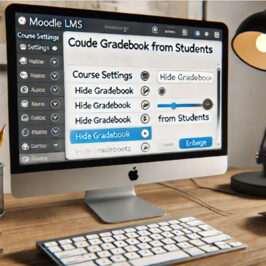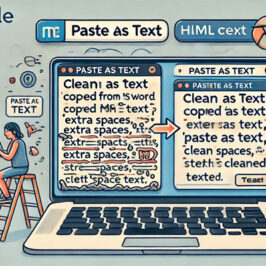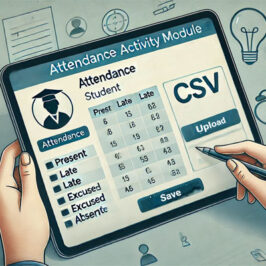Moodle LMS software is a mature, full-featured LMS that can perform quite well. When installed correctly, it runs right out of the box. However, when incorrectly installed, it can be a frustrating experience and you might be blaming Moodle. The fourth most common installation issue is not having enough disk space.
Moodle is a resource-hungry application. Technically, Moodle’s minimum system requirement is 512 MB of memory. However, if you check the system requirements of each component that go into building a Moodle website (operating system, web server, PHP, database server and Moodle itself), you will likely discover that the amount of memory required is often a minimum of 2 or 4 GB. The more concurrent active users you have on your site, the more memory your servers will require.
Computers and servers do not see the humour in running out of memory or available disk space. When it happens, they will do nasty things like crash. On a really bad day, they may also corrupt files, the file system, and/or make a mess of your database. These machines do not care if your backup failed last night, if it is final exam time, or if you are having relationship or financial issues in your life.
What can you do about it? Keep them happy by doing all of the following:
- Always have a recent backup that can actually be restored successfully, not just theoretically. Test your restore process periodically.
- See #1 (in case you skipped over it). It may help you with your relationship, work and financial issues when things go wrong. Automate your backups and you may also sleep better at night.
- Set up a swap file. Its size should be 2-4 times the physical memory in the server. Your two options are: having a more robust system that slows down when it runs out of memory or living with a more fragile system that will crash when it runs out of memory. Unless your instance of Moodle is running in a containerized environment, be responsible and just create the swap file.
- Ensure that your servers have sufficient free memory. Some people may advise you that a swap file is unnecessary and will cause your SSD drive to deteriorate more quickly. This is true, however, your students will enjoy a better-performing Moodle site. SSD drives are also relatively inexpensive these days.
- Ensure that your server has an ample supply of free space available. It does not take very long for someone to upload a video in a course and eat up those precious last few gigabytes of disk space. Even if you never upload another file into your LMS, Moodle and your web server are constantly creating cached and data files, log files and making changes to the database behind the scenes.
Hope you found this information helpful
Michael Milette







Add a comment: